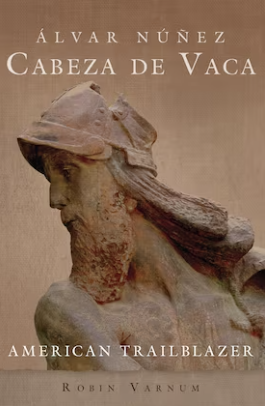Book review: ‘Álvar Núñez Cabeza de Vaca:American Trailblazer,’ by Robin Varnum
Almost 500 years ago, the newly formed Empire of Spain — forged by the marriage of Ferdinand and Isabella, blessed by the pope, and unified by the eviction of Moors and the forcible conversion of Jews — issued a declaration that would forever define the Americas. It was called the Requerimiento, and it stated unequivocally to natives of the New World that the land on which they stood belonged to the Spanish Crown, that they would henceforward be Christians, and that any effort to resist would be met with war, seizure and enslavement. Never mind that no indigenous American understood what was being said. Never mind that the declaration went unheard as it was shouted from hilltops, bellowed from ships or roared as conquerors gave chase after fleeing Indians. It was law in the Americas, and though called into question by conscientious Spaniards and human rights activists of the day, it became the legal basis for rampant bloodshed and slavery.
Few made efforts to spare the cruelty. One of the most notable defenders of Indians in Americas North and South was the explorer Álvar Núñez Cabeza de Vaca, a Spaniard who earned his sympathies the hard way: He had once been a slave to Indians himself.
The story of Cabeza de Vaca makes for almost hallucinatory reading: a dreamlike journey that ranges from the marshes of North America to the pampas of South America. In it, one man battles New World and Old in a desperate attempt to bring the two together. Told admirably in a new biography by Robin Varnum, it is a startling chronicle of “first contact” — when cultures face one another for the first time.

